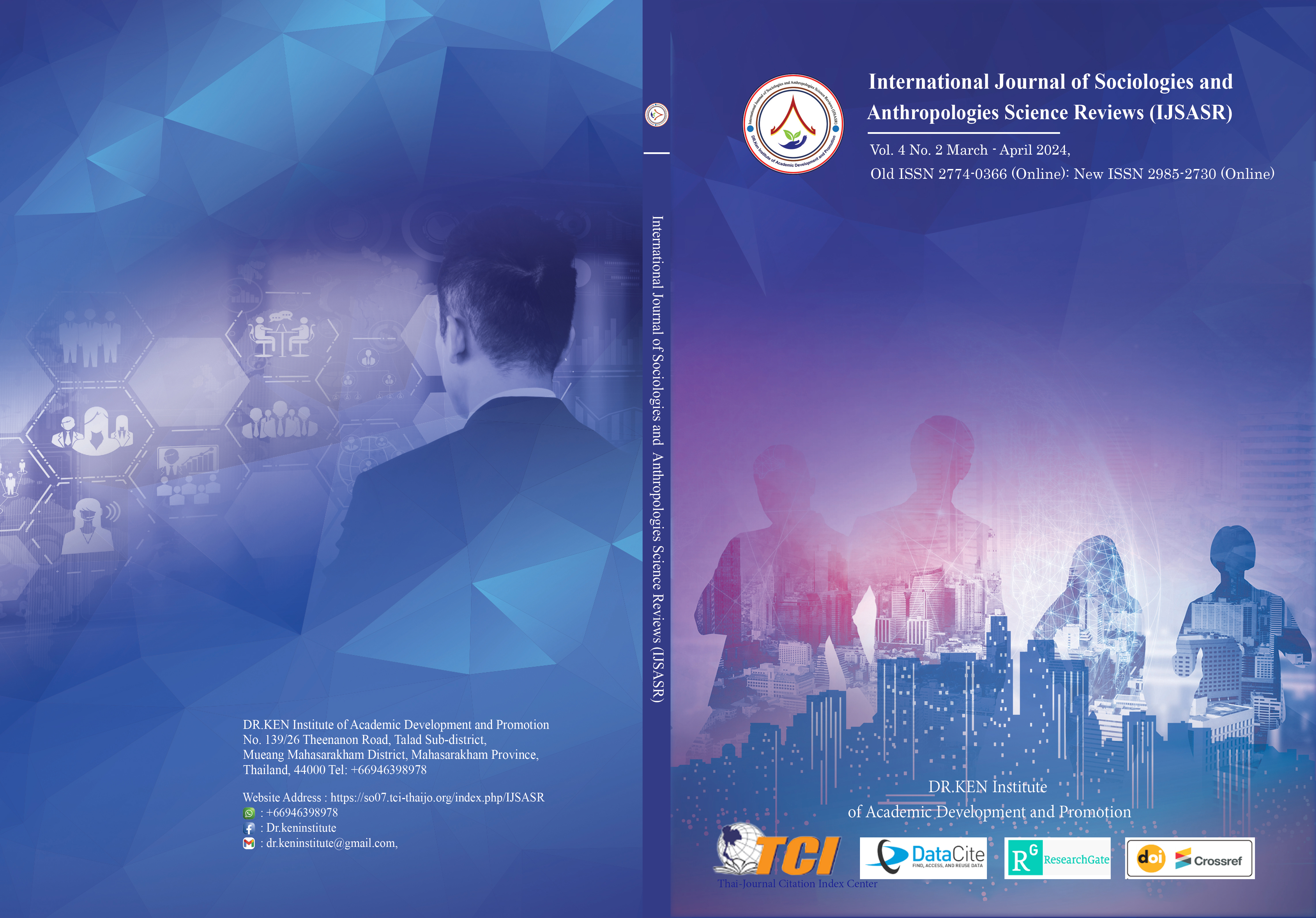“Public Sphere” and the Constructing of Strong Communities
Main Article Content
Abstract
Background and Aims: The term 'Öffentlichkeit' or 'Public Sphere' is a German concept used to elucidate the societal development of public consciousness. However, an examination of successful community problem-solving initiatives in Thailand reveals that the 'public sphere' plays a critical and dynamic role in fostering the success of community problem-solving. It serves as a crucial arena for pursuing consensus through deliberative democracy, facilitating the process of reaching agreements that contribute to resolving community challenges. This article presents the results of a research study on 'Public Sphere' stemming from a spatial readiness analysis.
Methodology: The action plan involves organizing a forum to explain the research project, holding group discussions, conducting in-depth interviews with individuals involved or playing significant roles in driving community-strengthening processes, and meeting with provincial subgroups to advance provincial development.
Results: Structured around four key topics, the article discusses: 1. The Construction of Strong Communities as a Foundation of Thai Democracy Development; 2. Utilizing the 'Public Sphere' as a Tool and Mechanism to Establish the Foundation of Thai Democracy; 3. Self-management practices in Successful Strong Communities across Various Regions; 4. Guidelines for Constructing the 'Public Sphere' to Cultivate Strong Communities. Each of these topics will be elaborated upon in the following sections."
Conclusion: The article's main goal appears to be to examine how strengthening communities and creating a vibrant "Public Sphere" are essential to the advancement of Thai democracy. The text underscores the importance of community self-management practices and guides fostering an inclusive 'Public Sphere' to fortify Thai society's democratic foundation.
Article Details

This work is licensed under a Creative Commons Attribution-NonCommercial-NoDerivatives 4.0 International License.
Copyright on any article in the International Journal of Sociologies and Anthropologies Science Reviews is retained by the author(s) under the under the Creative Commons Attribution-NonCommercial-NoDerivatives 4.0 International License. Permission to use text, content, images, etc. of publication. Any user to read, download, copy, distribute, print, search, or link to the full texts of articles, crawl them for indexing, pass them as data to software, or use them for any other lawful purpose. But do not use it for commercial use or with the intent to benefit any business.

References
Cohen, J. (1997). Deliberative and Democratic Legitimacy. In J. Bohman & W. Rehg (Eds.), Deliberative Democracy, Essays on Reason and Politics (pp. 72). Cambridge, MA; London, England: The MIT Press.
Future Leaders Project, Faculty of Learning Sciences and Education, Thammasat University. (2018). The happiness of Phang-nga, the Tangible Happiness. Nonthaburi: Thai Health Promotion Foundation.
Gerhard, J., & Neidhardt, F. (1990). Strukturen und Funktionen moderner Oeffentlichkeit: Fragestellungen und Ansaetze [Structures and Functions of Modern Public Sphere: Questions and Approaches] (WZB Discussion Paper, No. FS III 90-101[Digtized Version]).
Kooyai, K. (2013). Public space concept. Retrieved November 11, 2023, from https://kusumakooyai.blogspot.com/2013/05/blog-post.html
Phangngam, K. (2019). Self-management of community and locality. 2nd edition. Nonthaburi: Thammasarn.
Pintobtang, P., et al. (2022). The Development of Robust, Self-Reliant, and Adaptive Communities through Integration Practices. Bangkok: Community Organization Development Institute (Public Organizations).
Singkaneti, B. (2022). Innovation of Strong Communities and Foundation of Thai Identity Democracy. Bangkok: Duen Tulakom Printing.
Strategic and Development Department of Phang-nga. (n.d.). Collaboration Process to Identify Direction for "Happiness of Phang-nga." Project, supported by the Thai Health Promotion Foundation and Green South Foundation.






